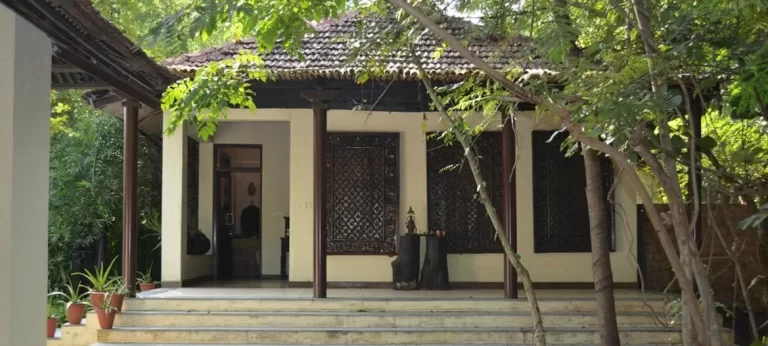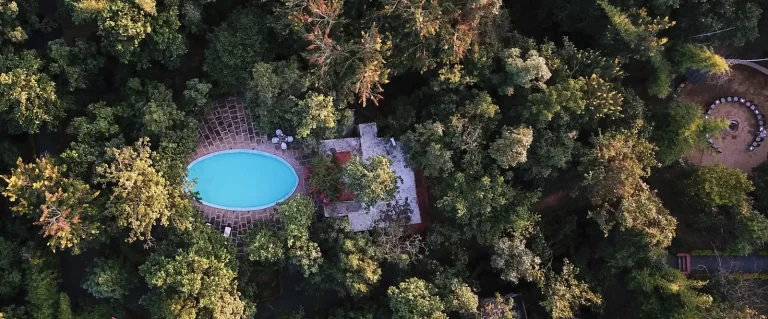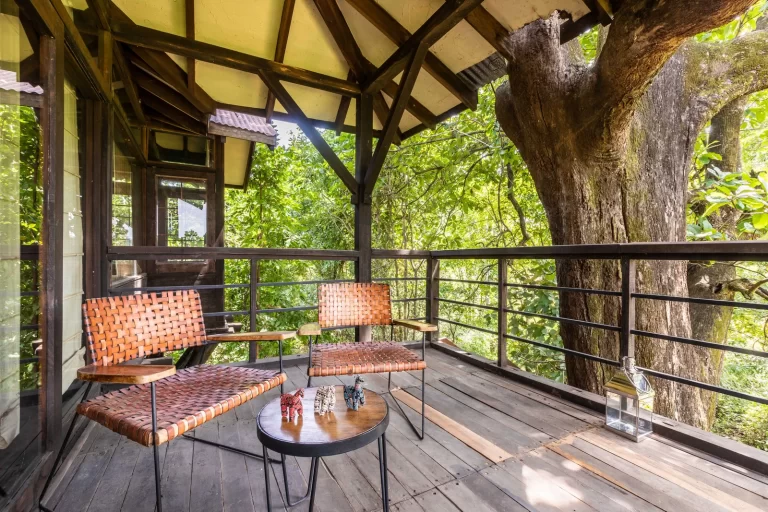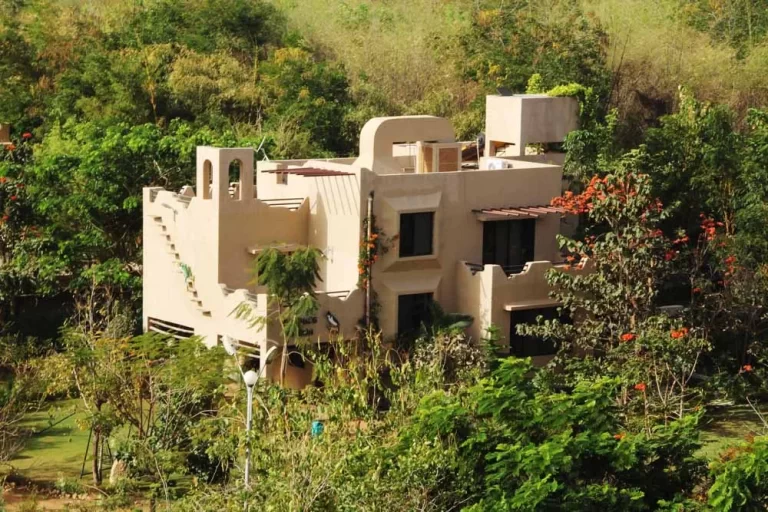Located in the Northern part of Pench National Park well into Madhya Pradesh, the camp stands isolated from all other lodges set close to Jamtara village, giving you exclusive access to the park via Jamtara gate, a two minute drive from the camp. Designed around the specifics of typical lodge in the wild akin to the lodges built by the Biritsh in the jungles around the country, Jamtara offers an exclusive experience of the jungles in close proximity. A generous Banyan tree at the entrance sets the tone for one’s stay here – as if arms outstretched to welcome you to Jamtara. You enter a world where the hosts, the team including the naturalists, neighbouring villagers, and often nature comes together in perfect harmony for an exploration of the jungles.
Enveloped by the buffer forests on one side, farmlands on the other, the 10 acres of the camp are an extension of the forest dotted with Teak, Arjuna and Kusum trees, crisscrossed by a dry river-bed, birdsong and insect chatter punctuating the stillness of the day. Arty and desgined keeping wildlife and nature in perspective, and staying true to their conservation pedigree, the owners have maintained a careful balance between sensitivity to nature and the experience of a luxury jungle camp. Exclusive for guests is the central lodge which houses the lounge, library, swimming pool, and dining which comes up ahead shortly as you enter; while quite discreet to the side is the main service area, staff quarters, and organic kitchen garden while the tents find space amidst the generous grasslands close to the treeline buffer forest and dried river bed.
The decor is simple yet stylish with striking colors of ochre, pink, green and turquoise over cushions and beds (quintessential A V Singh design, the creative partner in this project) – an interesting mix of elements, stories around furniture, floors and fixtures; and sourcing them come together to tint the tents with character. Where else would you hear of living spaces designed with weathered wooden flooring sourced from a ship recycling yard in Gujarat and writing tables that once served in the hallowed offices of the Supreme Court of India?
As you board off the transport, you walk through a natural jungle setting – dirt roads, a timber bridge over the dry river bed, past the ancient banyan tree, till you are greeted by the warm and friendly camp staff with a chilled leomonade and cold towels; you instantly know that the Jamtara jungle adventure is not without some signature indulgences.











